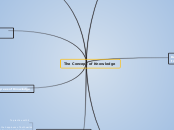The Concept of Knowledge
Definition of
Knowledge
Literal meaning comes from
Arabic word 'ilm which means
Al-Ma'rifah: knowing by experiment
Al-Fiqh: Understanding
Tadabbur: Observation
Basiran: Mental perception
Tazakkur: Remembrance
Tafakkur: Thought
Technical meaning
Realization of the meanings of things
(Al-Ghazzali)
The obtainment of the ma'na (meaning) of an
object in the soul and its arrival at the meaning
(Al-Attas)
Definition of Knowledge
from Islamic Perspectives
The opinions of Muslim philosophers
“Knowledge means the picture produced about something in the mind/intellect”
for example: when we picture a car in our mind: what will be pictured in our mind are the shape of the car, tyre, engine, steering, car seat and others. This means that we have knowledge about the car.
The group of sunnah (Ahl al-Sunnah) have the opinion, which is as follows
“Knowledge is what one knows about something/ what makes one knowledgeable about something.”
Imam al-Haramain
Way to visualize the purpose of knowledge about something by differentiating it with other things
For example: differentiating between a horse with a car.
al-Qadhi al-Baqilani
Knowledge is Knowing something known as the form and condition of itself in such a way
Naquib al-Attas
Knowledge has been understood to mean the holy Quran, laws of the syariah, faith, spiritual knowledge, wisdom, ma’rifah and others
Al-Jurjani
Viewed that al-Ma’rifah (المعرفة) and al-‘Ilm (العلم) mean to comprehend something as it appears with the use of senses from ignorance
Knowledge is the realization of something based on its true nature through different level of understanding such as application, comprehension, synthesis and judgement
It is a product of learning about all kinds of things which requires mental apprehension or cognition
Imam al-Ghazali
Knowledge is the acquisition of that information through which one can successfully attain the true goal of life
He looked the knowledge as the picture about something in the heart. That means the knowledge known by the heart is more genuine and secure because it is from Allah. This is because Imam al-Ghazali, as a sufi, thought “kashaf” (the seeing of the pure heart) as a source of knowledge when it is guided by iman with the help of the sound mind”
The Importance of Knowledge
The first revelation to the Messenger
(Al-'Alaq: 1-5)
Parallel with the man's obligation as a Khalifah
(Al-Baqarah: 30-33)
Islam is a religion based upon knowledge
The Quran is inviting man to ponder and think & learn
The world 'ilm and its derivatives mentioned more
than 700 in Quran
The authenticity of prophethood of Muhammad (SAW)
is the book of knowledge
Knowledge VS Information
Knowledge
Involves a personal experience
Knowledge is made up of factors such as
information, beliefs and experiences
Can be shared but might be perceived
differently
Information
General data expressed by numbers,
words, images and sounds
Can be shared, much more easily
understood by everyone
Perceived differently
Adab (Manners) & Knowledge Acquisition
Purify soul from impure traits &
blameworthy characteristics
Minimize affairs of the world
Be humble towards teachers
Ignore the different opinions
among people
Degrees of Knowledge
300% = Haqqul Yakin
200% = Ainul Yakin
100% = Ilm Yakin
70% = Zann (conjecture)
50% = Shakk (doubt
30% = Wahm (estimation)
0% = Jahl
Purpose of Seeking Knowledge
To practice with it
To achieve the happiness of both worlds
(hasanah al-Dunyanwa al-Akhirah)
To distinguish between right and wrong
To get Allah's pleasure
